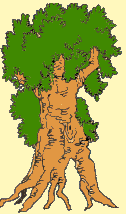Anemia
Anemia.
DEFINITION
Anemia is a relatively common health problem characterized by a lack of quality or quantity of red blood cells. Red blood cells are blood cells that are used, among other things, to provide oxygen to tissues and organs. People with anemia often feel tired and short of breath more easily than usual because their heart has to work a lot harder to make up for the failure of red blood cells. Anemia is then a symptom of an illness and should be looked for the cause is deep.
Causes
The causes are numerous:
- Iron deficiency.
the disease is caused by an iron deficiency, during excessive losses (heavy periods, gastric bleeding in the case of a gastric ulcer) or insufficient intake (food deficiencies, malabsorption, increased needs during pregnancy).
- A deficiency in vitamins and trace elements.
. It is caused by a deficiency in vitamins B12 and B9, iron, zinc and copper. .
- Chronic disease or disease of the bone marrow.
This form of anemia is caused by a lack of red blood cells if the production is insufficient or the destruction too massive. This is the case with certain infectious, autoimmune or toxic diseases. We can cite malignant lymphopathies, certain drugs, viral diseases, hepatitis, malaria, or even sometimes, unknown.
--A genetic disease.
Newborn anemia: The newborn may have anemia, when there has been a placental deficiency or a Rhesus compatibility problem between mother and child. We note here a massive destruction of red blood cells.
- Internal bleeding.
NB: We then note various forms of anemia: Deficiency anemia, chronic anemia, hemorrhagic anemia, hemolytic anemia, sideroblastic anemia, aplastic anemia, anemia of unknown cause.
PEOPLE AT RISK
People at risk are:
- Malnourished children (poor nutrition).
--People who have hemorrhoids that bleed.
- people suffering from gastritis (malabsorption of vitamin B12)
- people with gastric ulcers (blood loss)
- people suffering from lymphomas (destruction of blood cells)
- women with heavy periods (heavy loss of blood)
- pregnant women (increased iron requirement)
- pregnant women (when Rhesus incompatibility between mother and child)
SYMPTOMS
Symptoms of anemia are best tolerated in chronic anemia because the body has time to adjust to the lack of oxygen. This is not the case in acute anemia where the drastic drop in red blood cells is less well tolerated.
The general symptoms of different kinds of anemia are as follows:
- fatigue, pale complexion, cold hands and feet.
- pallor of the skin and mucous membranes
- palpitations, migraines and headaches.
- shortness of breath, heaviness and lightheadedness, dizziness and ringing in the ears.
NB: Following the lack of oxygen, the symptoms may worsen and cause in addition to these initial symptoms,
Symptoms characteristic of different kinds of anemia are listed below.
- Pernicious or megaloblastic anemia: This form of anemia is generally well tolerated, given its gradual onset. Vitamin B12 is also involved in nerve transmission, its deficiency can cause nervous disorders.
- Iron deficiency anemia (iron deficiency anemia): In general, the symptoms of this form of anemia are the same as the general symptoms. In addition, the disease is well tolerated: the body adapts to the lack of nails.
- Hemolytic anemia: In addition to the general symptoms, it is possible to identify a large spleen (splenomegaly) or jaundice
- Anemia of the newborn: The characteristic signs of anemia of the newborn are paleness, difficulty in bottle-feeding (due to shortness of breath) and a heart murmur.
Herbal teas
--Take dietary supplements of zinc, iron, copper, calcium, vitamins B12 and B9.
- Crush the cabbage leaves, add water, mix well and then extract the juice.
--Take every morning on an empty stomach, two tablespoons of honey and lemon juice.
- make a decoction of the roots and bark of fagara.
- take as a food supplement, moringa powder. Good remedy.
--Drink a decoction of coconut cake + a little potash.
NB: Consult your doctor to find the root cause and treat the disease at its root.
Add a comment






















